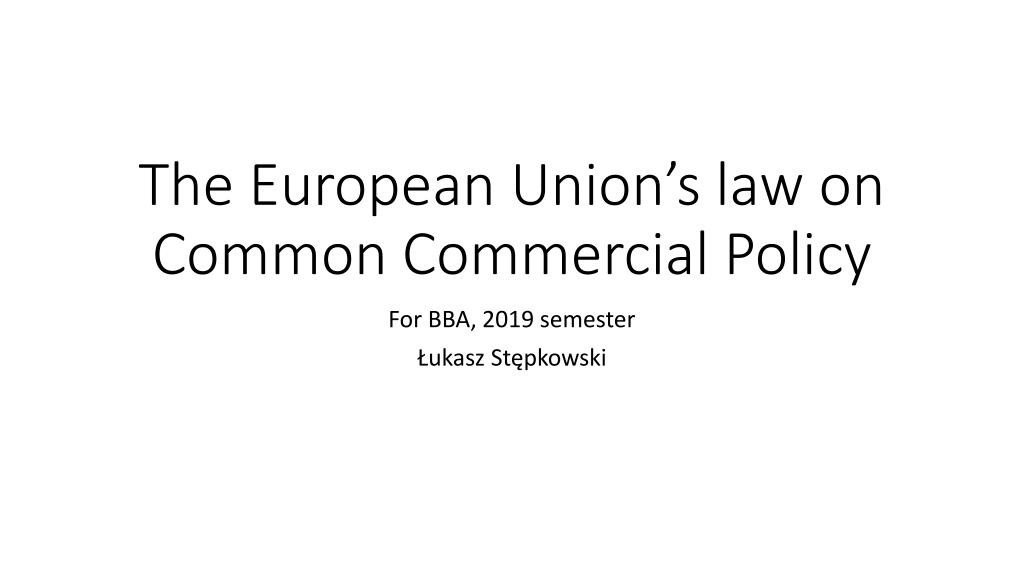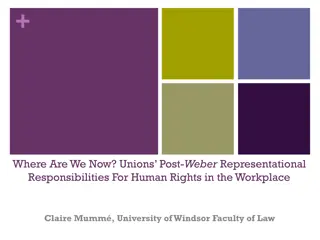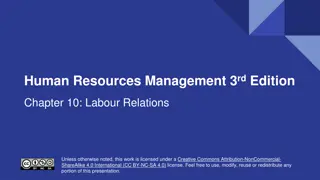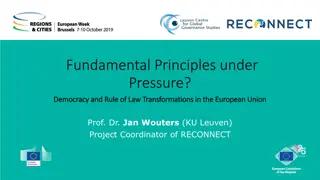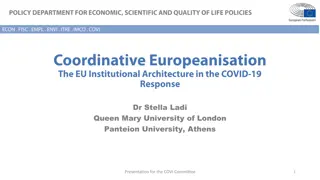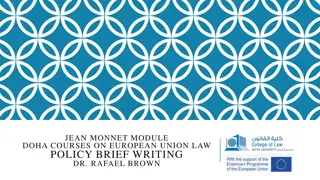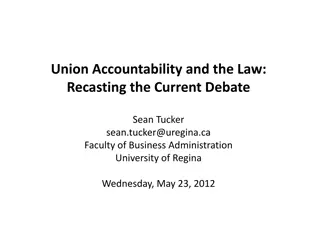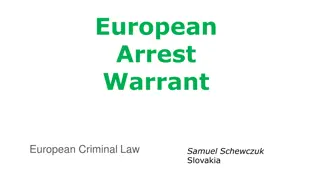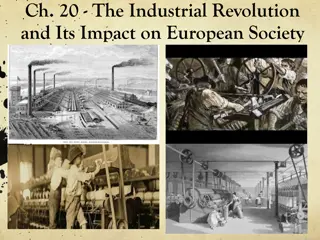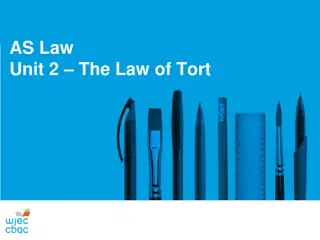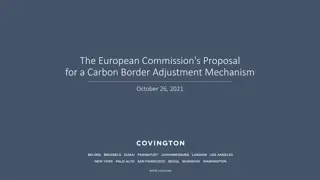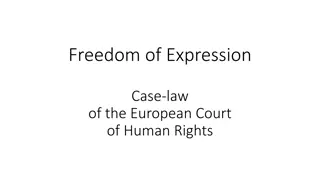The European Union's Law on Common Commercial Policy for BBA, 2019 Semester
The European Union has exclusive competence in common commercial policy for international trade. The Common Commercial Policy aims to abolish restrictions on trade and is part of the EU's external action powers. Specific provisions on the CCP are outlined in the EU Treaties, with Articles 206-207 of the FEU Treaty providing the purpose of the CCP and its focus on harmonious world trade development.
Download Presentation

Please find below an Image/Link to download the presentation.
The content on the website is provided AS IS for your information and personal use only. It may not be sold, licensed, or shared on other websites without obtaining consent from the author. Download presentation by click this link. If you encounter any issues during the download, it is possible that the publisher has removed the file from their server.
E N D
Presentation Transcript
The European Unions law on Common Commercial Policy For BBA, 2019 semester ukasz St pkowski
As regards international trade, the Union has express and exclusive competence Reminder: exclusive competence means that only the Union is empowered to act within a given area, and the Member States are precluded from doing so; when the Treaties confer on the Union exclusive competence in a specific area, only the Union may legislate and adopt legally binding acts, the Member States being able to do so themselves only if so empowered by the Union or for the implementation of Union acts. Those powers of the Union are framed directly in the Treaties, so this is not an implied power Article 3(1)(e) of the Treaty on the Functioning of the European Union provides that The Union shall have exclusive competence in the following areas ( ) e) common commercial policy Those general provisions should be read together with the specific Treaty provisions on the EU s Common Commercial Policy (CCP)
The general idea for the CCP is found under the preamble to the FEU Treaty DESIRING to contribute, by means of a common commercial policy, to the progressive abolition of restrictions on international trade In addition, the CCP is considered to be a part of the EU s external action powers, in that it is not geared towards the Member States, but rather non- member state third countries As it is a subset of the EU s external action, the CCP is subject to general rules on EU external action (ie Title V, Chapter I TEU : Articles 21-22). https://eur-lex.europa.eu/legal-content/EN/TXT/?uri=CELEX:12016M/TXT There are specific rules on the CCP in the FEU Treaty (Part Five, Title II of the FEU Treaty https://eur-lex.europa.eu/legal-content/EN/TXT/?uri=CELEX:12016E/TXT
Specific provisions on the CCP are found under Articles 206-207 of the FEU Treaty Article 206 TFEU provides the aim of the CCP: By establishing a customs union in accordance with Articles 28 to 32, the Union shall contribute, in the common interest, to the harmonious development of world trade, the progressive abolition of restrictions on international trade and on foreign direct investment, and the lowering of customs and other barriers . However, this provision is not meant to introduce a rule that third countries may invoke against the Union it is also general enough not to create any rights for individuals (esp. individuals from third countries; see Geiger/Khan/Kotzur, EU Treaties Commentary, Munich 2015, p. 755) It does, however, illustratively refer to the areas subject to CCP : international trade (as far as public law is concerned), customs and other barriers, and restrictions on trade and foreign direct investment The FDI part is newer and in place since the Treaty of Lisbon s amendments
Further, the CCP is governed by Article 207 TFEU Article 207(1) TFEU reads: The common commercial policy shall be based on uniform principles, particularly with regard to changes in tariff rates, the conclusion of tariff and trade agreements relating to trade in goods and services, and the commercial aspects of intellectual property, foreign direct investment, the achievement of uniformity in measures of liberalisation, export policy and measures to protect trade such as those to be taken in the event of dumping or subsidies. The common commercial policy shall be conducted in the context of the principles and objectives of the Union's external action . There is secondary law on the CCP, including secondary law adopted under the ordinary legislative procedure (207(2) TFEU) In addition, Article 207(1) TFEU is open-ended; the list of areas is illustrative Geiger/Khan/Kotzur et al add that while the list is illustrative, there may be exceptions that would otherwise fall within Article 207 TFEU (eg. Transport, p.759)
The CCP includes entering into international agreements with third countries To that end, there are specific rules under Article 207(3) TFEU that supplement Article 218 TFEU (the latter is the general provision on EU s conclusion of international agreements) In particular, there is no room for the High Representative at all There is a special comittee which monitors the Commission s conduct, in addition to the Council Outside Article 207 TFEU, Article 218 TFEU applies (and e.g. it is the Council which generally concludes international agreements on part of the Union, unless there is a delegation)
There are special rules on voting in the Council as regards the CCP Generally, the Council votes by way of a qualified majority However, Article 207(4) TFEU reads: For the negotiation and conclusion of agreements in the fields of trade in services and the commercial aspects of intellectual property, as well as foreign direct investment, the Council shall act unanimously where such agreements include provisions for which unanimity is required for the adoption of internal rules. The Council shall also act unanimously for the negotiation and conclusion of agreements: (a) in the field of trade in cultural and audiovisual services, where these agreements risk prejudicing the Union's cultural and linguistic diversity; (b) in the field of trade in social, education and health services, where these agreements risk seriously disturbing the national organisation of such services and prejudicing the responsibility of Member States to deliver them.
Articles 206-207 TFEU do not refer to an individual and lack direct effect; this is left to secondary law As an example, there is the Regulation (EU) 2015/1843 of the European Parliament and of the Council of 6 October 2015 laying down Union procedures in the field of the common commercial policy in order to ensure the exercise of the Union s rights under international trade rules, in particular those established under the auspices of the World Trade Organization ( Regulation 2015/1843 ) which has direct effect This Regulation sets up a procedure within which an individual may petition the Commission to engage in international trade disputes https://eur-lex.europa.eu/legal- content/EN/TXT/?qid=1552308264369&uri=CELEX:32015R1843
There is neither a closed definition nor an exhaustive list of trade measures which may be undertaken by the Union in response to the developments in international trade However, the illustrative examples are: General changes in tariff rates Non-tariff trade restrictions Quotas Prohibitions of trade Licences Import and export surveillance Special import/export regimes (eg cultural goods) Anti-dumping duties Countervailing duties
Dumping and what to do with it The practice of dumping amounts to exporting a product into the Union, where export price to the Union is less than a comparable price for a like product, in the ordinary course of trade, as established for the exporting country Obviously, this leads to injury on part of the Union s undertakings, who then may not sell a comparable product for profit As such, the Commission is authorized to conduct anti-dumping proceedings within the Union and impose anti-dumping measures https://eur-lex.europa.eu/legal- content/EN/TXT/?qid=1552311978270&uri=CELEX:02016R1036-20180608
Countervailing duties These measures are used where there are subsidised imports into the Union As it is the case with anti-dumping, there is a procedure for the Commission to employ, modelled after the WTO s Agreement on Subsidies and Countervailing Duties https://eur-lex.europa.eu/legal- content/EN/TXT/?qid=1552311979196&uri=CELEX:02016R1037-20180608 However, while modelled after the Agreement, the Commission may order provisional countervailing duties and there is, to an extent, retroactivity
The CCP is subject to as are great many things, both big and small to the case law of the Court of Justice of the EU In particular, given that this is a field of EU external action, the Court is relatively often asked to give opinions on proposed international agreements, pursuant to Article 218(11) TFEU Opinion no 2/2015 : https://eur-lex.europa.eu/legal- content/EN/TXT/?qid=1552313054671&uri=CELEX:62015CV0002(01) EU/Singapore FTA
